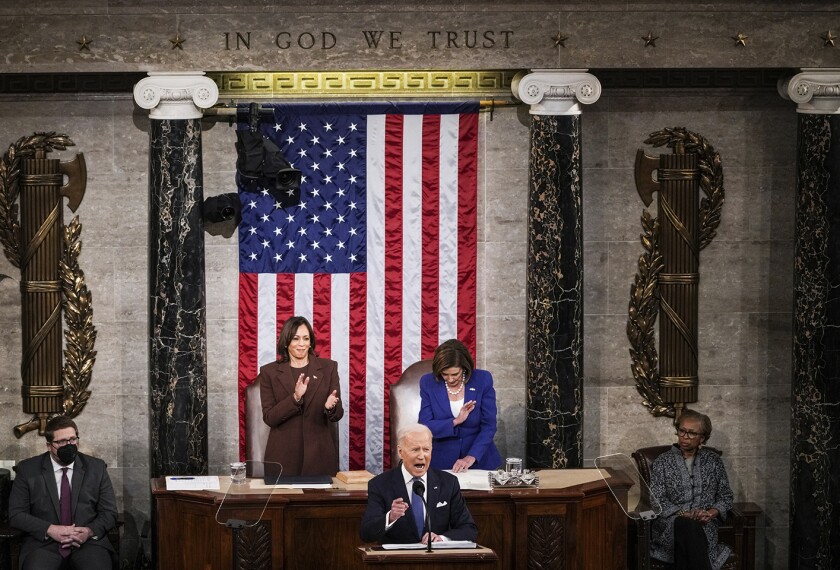President Joe Biden’s first State of the Union address mentioned students and schools alongside pressing national issues like COVID-19 recovery and foreign relations.
But maybe you’re a stressed out educator who was too busy to watch? We’ve got your back. Here’s a cheat sheet of K-12 education mentions in the address. Read complete coverage of the State of the Union here.
Mental health: Biden called for bipartisan action to respond to a national mental health crisis, paying particular attention to concerns about children and teens. He will propose $1 billion in new federal spending for school psychologists and counselors, and he wants to cut red tape to make it easier for schools to bill Medicaid for mental health services. “Let’s take on mental health,” Biden said. “Especially among our children, whose lives and education have been turned upside down.”
Tutoring and mentoring: In making the pitch that"we can all play a part in schools’ COVID-19 recovery,” Biden urged Americans to “sign up to be a tutor or a mentor.” His comments came as schools report staffing and volunteer shortages for things like after-school programs.
How parents can keep the pressure on: “T��� American Rescue Plan gave schools money to hire teachers and help students make up for lost learning,” Biden said. “I urge every parent to make sure your school does just that.” In a fact sheet, the administration said it would continue encouraging schools to spend relief funds on things like individual and small group instruction, more instructional staff, tutoring programs, and after-school and summer learning efforts. But some education advocates have lamented the lack of transparency in how schools spend $130 billion in aid provided through the American Rescue Plan. And organizations like the National Parents Union have urged families to speak up about how their schools use the funds.
COVID-19 and school closures: “Our schools are open,” Biden said. “Let’s keep it that way.” Republicans have raised school closures in midterm campaigns, and the Biden administration has stressed that schools have the tools they need to stay open, even if future variants emerge. Federal health officials gave schools in most of the country the green light to lift mask requirements in new guidance Friday.
Infrastructure: Biden touted measures in the $1.2 trillion bipartisan infrastructure bill he signed in November that will help expand broadband access and to close the “homework gap” for students without internet at home. The bill also provides some funding to replace major lead pipes that lead to schools.
Pre-K and college: Biden called for “pre-K for every 3- and 4-year-old,” a proposal that was part of his Build Back Better plan, which stalled in the Senate. It’s unclear how he may repackage some of those social spending priorities in another legislative push. He also called for expanding the maximum Pell grant for low-income students, a less- ambitious version of his previous proposal, which called for two years of free college for all Americans. And he made a pitch for increased support for historically Black colleges and universities.
Transgender students: Biden had a message for transgender young people: “I will always have your back as your president, so you can be yourself and reach your God-given potential.” His administration has asserted that transgender student rights are protected under Title IX, but some advocates have called for more-aggressive action as states like Florida consider bills to limit discussion of gender identity in schools and as Texas moves to investigate gender-affirming care as child abuse.






